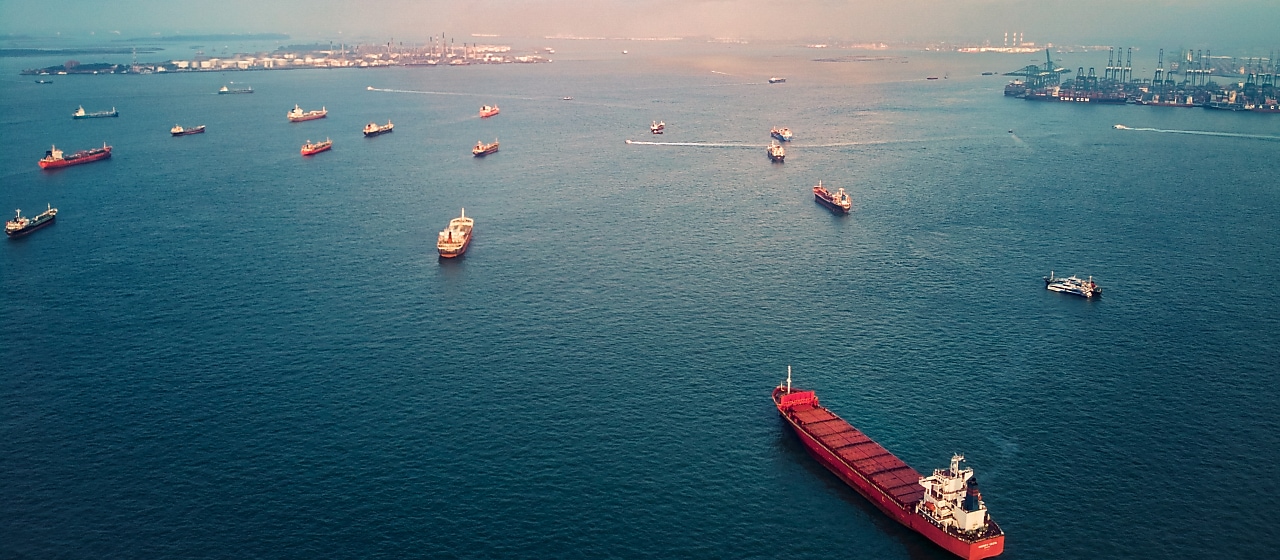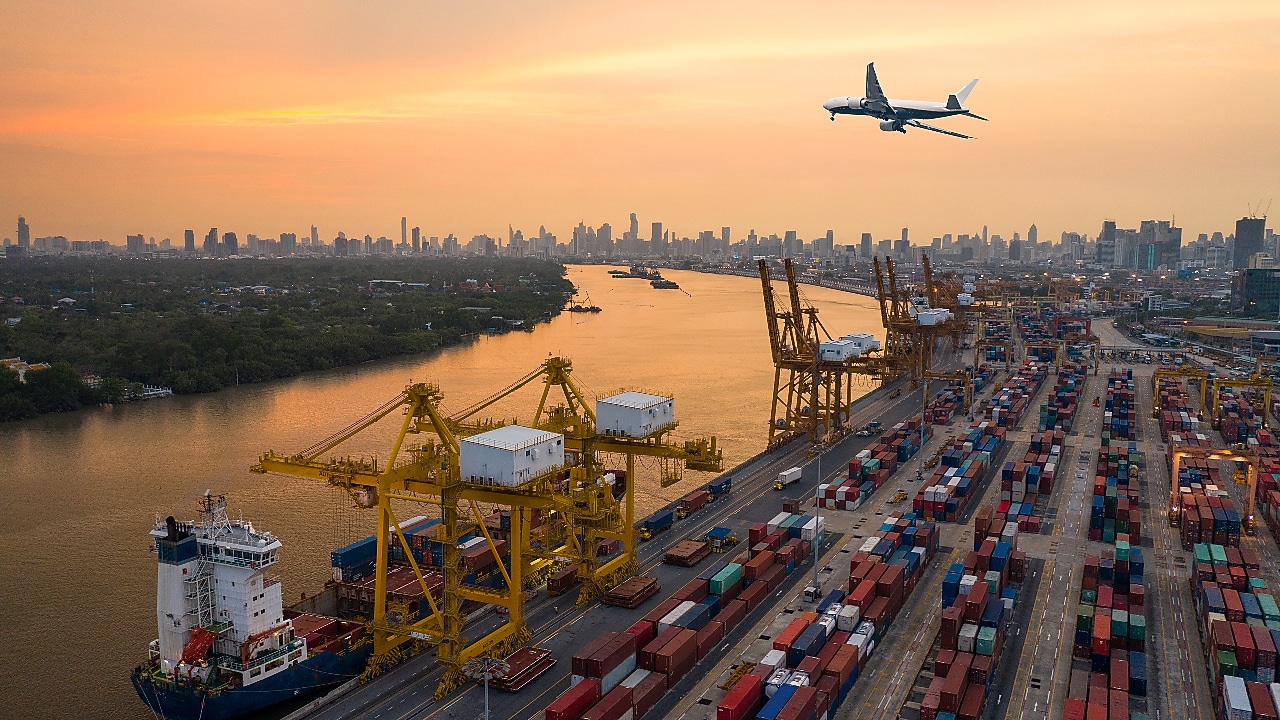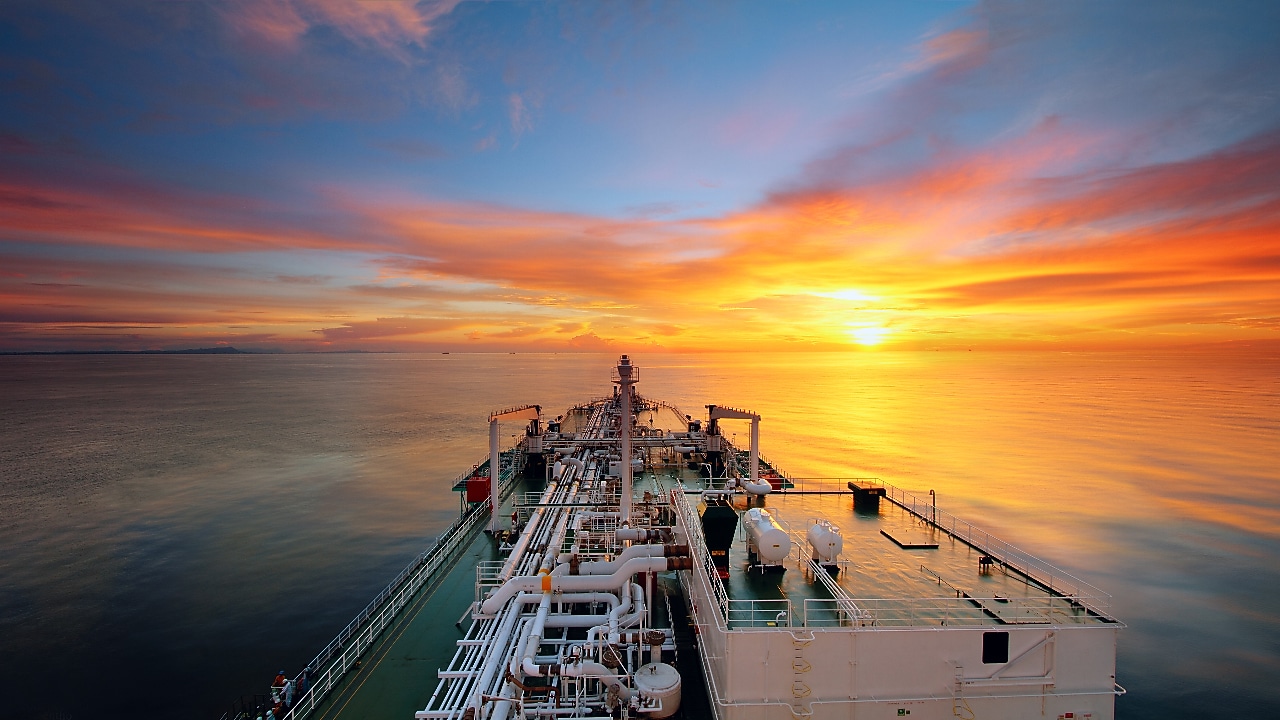
People Powering Progress: Charting change with Shell Marine’s Carbon Program Manager
Through the eyes of Shell Marine’s Carbon Program Manager, discover what it takes to power net zero in the 24/7, fast-evolving shipping sector.
Rakshay Shah, Carbon Program Manager at Shell Marine wakes up at 3am and starts his day with a workout. He then goes on to catch up with the news, as, “there's always something in the shipping industry that's happened while I've been asleep”. Providing the market insights that inform Shell Marine’s approach to alternative fuels and low-carbon supply opportunities is no easy feat in a “24/7” sector, but for Rakshay, it’s all in a day’s work.
In the first interview of our People Powering Progress series, Rakshay outlines his day-to-day as a driving force in Shell Marine’s methane pathway strategy, sharing how he advises customers on fuelling their journey to net zero greenhouse gas emissions, what it takes to succeed in the sector, and his vision for the future of shipping decarbonisation.

What first inspired you to pursue a career in energy and what experiences have led you to your current role within Shell Marine?
Let me go back to the start of my career. I started off in the chemicals industry and was tasked with optimising my unit, trying to make the most money out of the olefins plant I was working in. Even though I was in Downstream, I had to understand what was driving profitability. This rapidly developed my interest in energy. I later went back to school to get an MBA because I needed to sharpen my business acumen.
I joined Shell in 2006, and spent most of my time in Shell's refineries, working in economics and scheduling. I'm an optimiser at heart, so I love linear programming and figuring out how to make the most returns from plant operations. In the middle of the pandemic, I had a burning desire to do something in the alternative energy space and took on a strategy role supporting Shell's offshore wind and hydrogen businesses. It was a great segue into my current role – Carbon Program Manager at Shell Marine.
How would you describe your role in a few words, and what does a typical day look like for you?
I see myself as an energy industry strategist optimising commercial and compliance decisions across fuels and decarbonisation. I help define what fuels we should market and articulate our strategy to account managers and customers. It's a mix of internal and external work, aligning with supply-demand dynamics and evolving regulations.
My typical day starts at 3am – which might sound crazy to most. I start with a 90-minute workout, catch up on shipping industry news over coffee, and I am at my desk by 6:30am, ready for meetings with colleagues in Europe and Singapore. My mornings are hectic due to time zone overlaps. Afternoons are quieter, allowing me to focus on individual work or take a short break to recharge if I have evening calls with Asia-based customers. I usually go to bed around 9pm, so I get about six hours of sleep. It's manageable and even magical in some ways.
Are there specific aspects from your professional life that you carry into your personal day-to-day?
Over the past four to five years having worked in the energy transition space, I've become very conscious of my own carbon footprint. I am quite blessed that I have a bus service that drops me off in front of the office and picks me up from home, which saves me the hassle of driving to work.
Beyond that, as mentioned, I’m an optimiser at heart. When I’m on holiday (even though it drives my family a bit crazy), I’m always the one who tries to maximise schedules so we can cover as many things as possible in the short time that we have. Whether planning vacations or daily routines, I aim to use time and money efficiently. That mindset carries over from my work into family life.

Has there been a standout project that stuck with you as part of your role, and what advice would you give to someone entering the marine fuels space?
When I joined Shell Marine, our team was tasked with evaluating methanol as a fuel. It requires less infrastructure and customers love that, but producing lower-carbon bio-methanol is expensive. Together we spent about a year and a half studying its viability, potential markets, and internal Shell partnerships. This taught me what it takes to bring a new fuel to market: it’s not for the faint-hearted. That journey gave me perspective, customer insights, and reinforced confidence in our methane and biofuels strategy.
As for my piece of advice, I would say – filter the noise. Marine is noisier than any other industry I’ve worked in. Every day brings new headlines, everyone has a favourite fuel, and regulations are complex. So, block out the noise and focus on fundamentals: supply-demand, economics, and where the industry is headed. That clarity makes the solutions easier to see.
Rakshay Shah, Carbon Program Manager, Marine, Low Carbon Solutions at Shell“Block out the noise and focus on fundamentals: supply-demand, economics, and where the industry is headed. That clarity makes the solutions easier to see.”
What does decarbonisation mean in the marine sector, and how has your role evolved with the global shift towards net zero?
Decarbonisation has taken real hold over the past few years. When I started this role in 2021, regulations were barely formed. At Shell Marine, we were trying to define our strategy, figuring out what fuels to market and how to respond to evolving policy. Initially, we tried to be everything to everyone. But we soon realised we needed a practical focus aligned with industry evolution.
Today, regulations include FuelEU Maritime and EU Emissions Trading Scheme (ETS), which began in 2024. The International Maritime Organization (IMO) announced its own trajectory and carbon pricing measures starting in 2028. These measures are game changers. Early on Shell created a fuel mosaic to explore and understand all possible fuel options. Over time, we recognised that we had to focus our efforts on methane and biofuels.
How do you balance short- and long-term decarbonisation goals in such a fast-evolving environment, and what excites you most about the future of the marine industry?
Navigating maritime industry regulations is like threading a needle. I go back to fundamentals: fuel supply-demand, economic viability, scalability. That clarifies which fuels make sense. At Shell Marine we are helping shipping customers decarbonise with the methane pathway, which starts with liquefied natural gas (LNG) and adding bio-LNG and, in the future synthetic LNG, in any proportion to meet voluntary or regulatory targets. Beyond that, regulations are becoming clearer.
As mentioned, the IMO set a 50% emissions reduction target in 2018, now updated to net zero by 2050, and the mid-term measures it announced in April 2024 – including greenhouse gas intensity targets and a carbon price – provided alternative direction. With this, we should see real momentum in alternative fuels. This is the moment to help customers, align with Shell’s strategy, and position us for 2028 and beyond. It’s a pivotal time to shape the industry.


You’ve been at Shell for nearly 20 years. What are your reflections on that journey?
For me, it’s the people who make Shell special. Across departments, Shell people are welcoming, curious, and always willing to grow with you. When I moved during the pandemic, learning offshore wind from scratch, I had the network and support to make it work. That makes all the difference. You can do almost anything at Shell if you’re willing to take the plunge and seek out new opportunities.
What motivates you to keep striving for excellence in today’s challenging landscape?
I have a learner mindset. I’m always trying to build my toolkit. Challenges pull me out of my comfort zone, but they offer opportunities to grow. There’s no cookbook for my job – everything is learnt on the fly and it’s that ambiguity that makes every day exciting.
Rakshay Shah, Carbon Program Manager, Marine, Low Carbon Solutions at Shell“I have a learner mindset. I’m always trying to build my toolkit. Challenges pull me out of my comfort zone, but they offer opportunities to grow.”
Date of publication: September, 2025

Driving decarbonisation from ‘what’ to ‘how’
The world’s largest companies explain the actions they are taking to reduce carbon emissions and why they choose to work with Shell as their decarbonisation journeys move from “what” to do, to “how” to do it.


